Africa Climate Summit: Building partnerships and supporting the development of the library field
26 September 2025
The following is a summary report on the Collaboration between the IFLA Sub-Saharan Africa Regional Division Committee (SSA RDC) and Climate Heritage Network– Africa & Arab States Secretariat at the African Climate Summit 2 (ACS2) and a Workshop in Ethiopia, Addis Ababa.
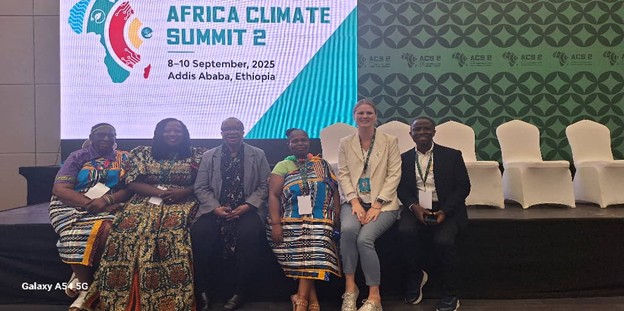
Introduction
The IFLA Sub-Saharan Africa Regional Division Committee (SSA RDC), in partnership with the Climate Heritage Network
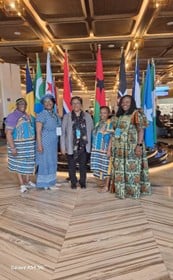
(CHN) Africa and Arab States Secretariat, successfully convened two high-level side events during the African Climate Summit 2 (ACS2) in Addis Ababa, followed by a capacity-building workshop hosted at Addis Ababa University from 8th to 10th September 2025. This collaboration emerged from the SSA RDC’s broader commitment to fostering cross-sectoral partnerships to strengthen the visibility of libraries in climate action, cultural heritage, and community resilience.
The SSA RDC was well represented at the events by a team comprising Dr. Monica Mensah Danquah (Chair of the Committee), Dr. Buhle Mbambo-Thata (Member of the Committee), Dr. Ayanda Lebele (Immediate Past Chair of the Committee), Ms. Lindy Nhlapo (Regional Council Representative), and Ms. Nthabiseng Kotsokoane (Member of the Committee). The team’s collective presence and contributions significantly enhanced the visibility of the SSA RDC and IFLA, and underscored its commitment to championing the role of libraries in climate action and cultural heritage initiatives across the region.
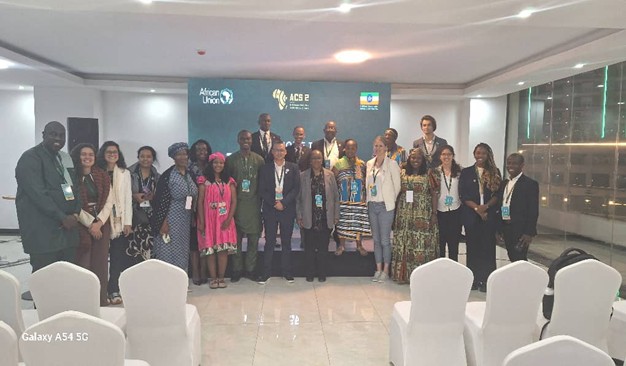
Side Events
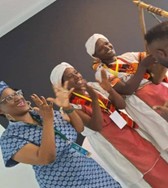
The first side event, themed “Heritage in Climate Policy- Aligning NDCs with Culture-Based Adaptation,” took place on 8th September. It brought together policymakers, heritage experts, and LIS professionals to advocate for the integration of cultural heritage into African climate policies and finance frameworks.
The session highlighted the role of libraries as inclusive spaces for climate education and concluded with calls to institutionalize heritage considerations within African climate strategies.
The second side event, held on 9th September and themed “Mobilizing Culture and Heritage for Climate Resilience – African Solutions from the Ground Up,” spotlighted community-driven and heritage-based approaches to climate adaptation. It showcased African-led grassroots models, emphasized the importance of indigenous knowledge systems, and encouraged stronger collaboration between cultural heritage sectors, local governments, and libraries to drive sustainable, community-based climate solutions.
The Workshop
On 10th September, the collaboration culminated in a workshop titled “From Insights to Action – Advancing Professional Networking for Advocacy and a Sustainable LIS Service in Sub-Saharan Africa.” Co-organized by the IFLA Africa Office, SSA RDC, the University of South Africa, and hosted by Addis Ababa University, the workshop brought together LIS professionals from across the region.
Participants explored the role of libraries in climate action, built professional networks, and developed advocacy skills to champion sustainability and resilience within their institutions and communities. Many participants expressed interest in joining IFLA and contributing to future regional initiatives.
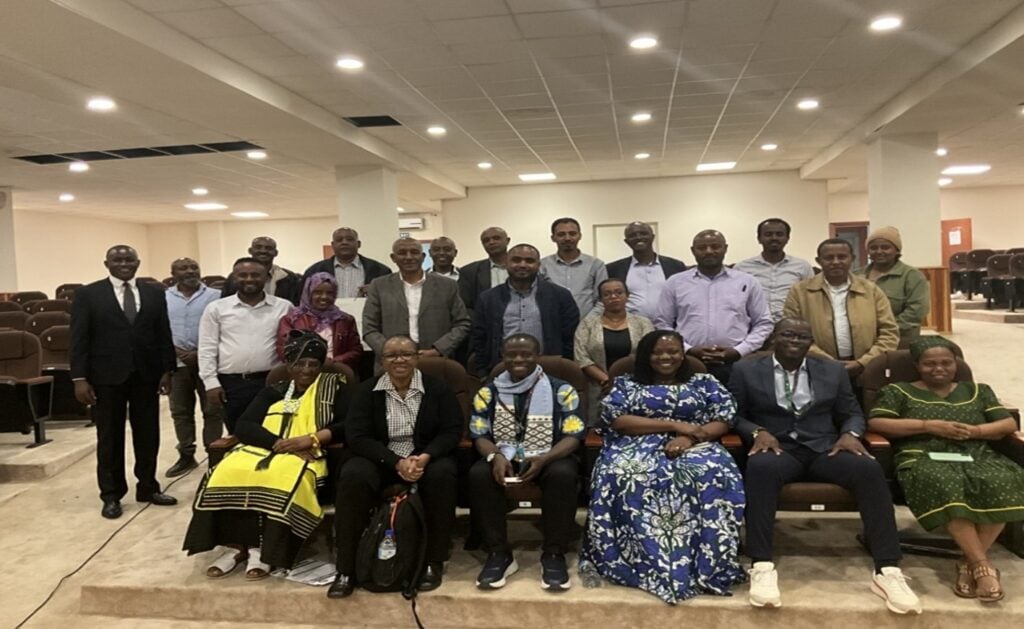
Collectively, these events positioned libraries and information professionals at the heart of continental climate and cultural heritage conversations, created strong visibility for the SSA RDC as an active regional committee, and forged enduring partnerships with CHN, ICOMOS, ICLEI Africa, Unisa, and Addis Ababa University. This milestone collaboration reinforced the transformative potential of aligning climate, culture, and knowledge institutions, and affirmed the critical role of libraries in advancing climate education, heritage preservation, and community resilience in Africa.
A key takeaway from the workshop was a strong advocacy call for the establishment of a national library association in Ethiopia. Participants from Ethiopia warmly welcomed the idea, recognising its potential to unify the profession, strengthen advocacy, and promote professional development within the country. Initial blueprints and action steps were outlined during the discussions to guide the process of initiating and building the association. The SSA RDC team expressed readiness to provide technical guidance and mentorship support, including convening a follow-up meeting with the Ethiopian team to map out the way forward. It was also proposed that the emerging association could be paired with leaders of exemplary library associations within the Sub-Saharan Africa region to share best practices and mentorship for sustainable growth.
Conclusion
The joint engagement between the IFLA Sub-Saharan Africa Regional Division Committee (SSA RDC) and the Climate Heritage Network (CHN) at the African Climate Summit 2 and Addis Ababa University successfully achieved its core objective of raising awareness about the critical role libraries play in climate change discourse and action.
The sessions underscored not only how libraries can serve as hubs for climate education and community resilience, but also how climate change directly affects libraries and their collections, threatening the preservation of cultural and documentary heritage.
Importantly, the events highlighted the need to strengthen IFLA’s footprint in Ethiopia, fostering a stronger national presence and supporting the development of professional structures and networks that can anchor sustained library advocacy and climate action efforts in the country. Furthermore, the team was able to initiate meaningful conversations that are expected to evolve into strategic partnerships and collaborations with key stakeholders across the heritage, cultural, and environmental sectors. This marks a significant step toward embedding libraries more firmly in Africa’s climate and cultural heritage agenda, while laying the foundation for future joint initiatives that will amplify the voice and impact of libraries across the region. The SSA RDC looks forward to building on this momentum through sustained collaboration and expanded partnerships in the years ahead.
Appreciation
We wish to express our deep appreciation to the IFLA Headquarters for facilitating this programme and for their unwavering support throughout the planning and implementation stages. The commitment and logistical assistance provided by the team at IFLA HQ were instrumental in ensuring that the SSA RDC delegation was able to travel to Ethiopia and effectively contribute to the success of the events.
We also extend our sincere gratitude to the Climate Heritage Network (CHN)-Africa and Arab States Secretariat for their invaluable collaboration and shared vision, which made it possible to bring together diverse stakeholders to advance the role of libraries in climate action and cultural heritage preservation.
Appreciation also goes to all the panelists and participants, both on-site and online, for their active engagement and contributions throughout the programme. We are equally grateful to Addis Ababa University, the University of South Africa (Unisa) Library, and the many library professionals who joined us at the workshop and enriched the discussions with their insights and experiences. Finally, heartfelt thanks go to the IFLA SSA RDC team for their dedication, teamwork, and exemplary representation of the region; their collective effort played a vital role in the overall success of this initiative.
Compiled by:
Dr. Monica Mensah Danquah
Chair: IFLA SSA RDC